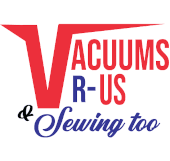Why Should I Service My Commercial Sewing Machine?
A commercial sewing machine requires service every now and then to keep it running smoothly. If you notice your sewing machine starting to act up, it’s probably time to take it in for a tune-up. Our stores in Boulder and Arvada, Colorado can help. Lots of sewists ignore this until their machine needs heavy repairs. Unfortunately, many of these repairs may have been avoided if the sewing machine was serviced often.
Regular maintenance for your sewing machine can lead to several benefits, such as:
Longer Machine Lifespan
The parts of a sewing machine are delicate, so it’s important that they’re well lubricated. This will reduce wear and tear on the device as you work with its various mechanisms! As the oil and grease used for lubrication gradually dry up, so will your machines performance, increasing friction between components.
Excessive friction can lead to irreversible damage that shortens the life span of the machine. Luckily, owners can prevent this from happening by getting their units serviced by certified commercial sewing machine repair centers.
Save Money on Repairs
If you’re looking to purchase an industrial sewing machine, it’s important to keep in mind that well-maintained units will have less wear and tear. This means that the parts of these units rarely require replacements, which can save you a lot of money in the long run. To keep your machine in good condition, be sure to follow the manufacturer’s recommended maintenance schedule. This will help ensure that your machine continues to operate smoothly and efficiently for many years to come.
Sew Quality Rises
In order to keep your sewing machine running at its best, it is important to perform regular tune-ups. This will ensure that all the mechanisms are working properly and that the machine produces beautiful, consistent stitches.
There are a few key components that you should focus on during a tune-up:
1. The tension assembly: This part of the machine controls the tension of the thread. If it is not working properly, the thread can become loose or too tight, affecting the quality of the stitches.
2. The feed dogs: These are the parts that move the fabric through the machine. If they are not working correctly, the fabric can bunch up or get stuck, again impacting the quality of the stitches.

